
Théodore Géricault The Raft of the Medusa 1818–19 Musee du Louvre
I have a real passion for history. A big regret is that thanks to the English school system, I never studied history at school after the age of thirteen, which is mad really as I’ve always been fairly obsessed with it. I chose geography for some reason that I can't remember. My involvement with art is probably also a way of engaging in a creative kind of historical study. When recently asked about ‘politics’ in terms of my work I was a bit thrown.
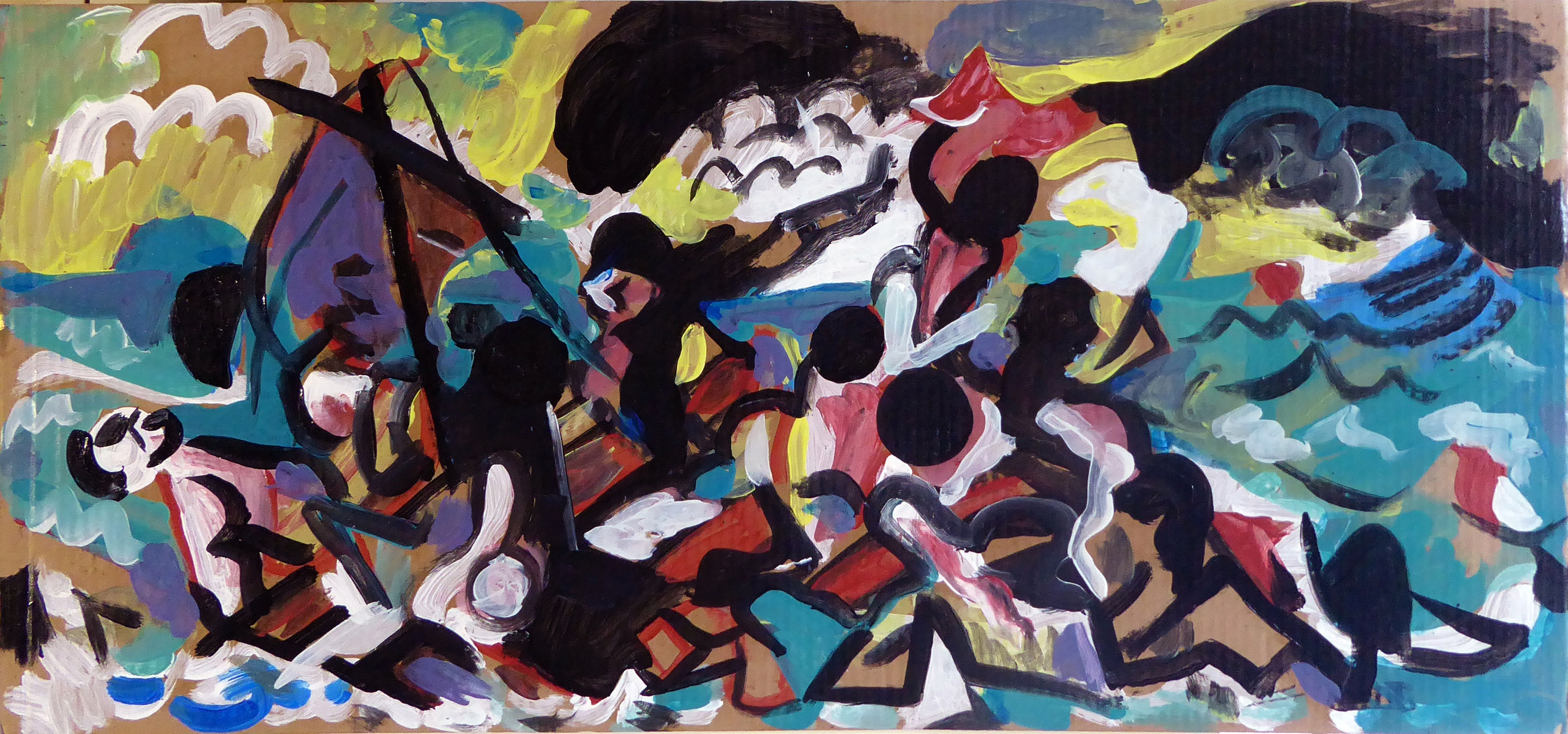
'After The Raft of the Medusa' 2018, Acrylic on cardboard, 41 x 87 cm
I think that politics, history and representation are all linked for me in ways that slip away from them all. Virginia Woolf's book Orlando is one of my favourite thought experiments and I think that, by being creative, Art and Literature can offer dynamics of escape from representation and history. More than this however Art, while it is grounded in representational nature, can also become very actual, material, and immediate.

'The Admiral's House' 2018, Acrylic on polyester canvas
(with rope artist frame), 140 x 100 cm
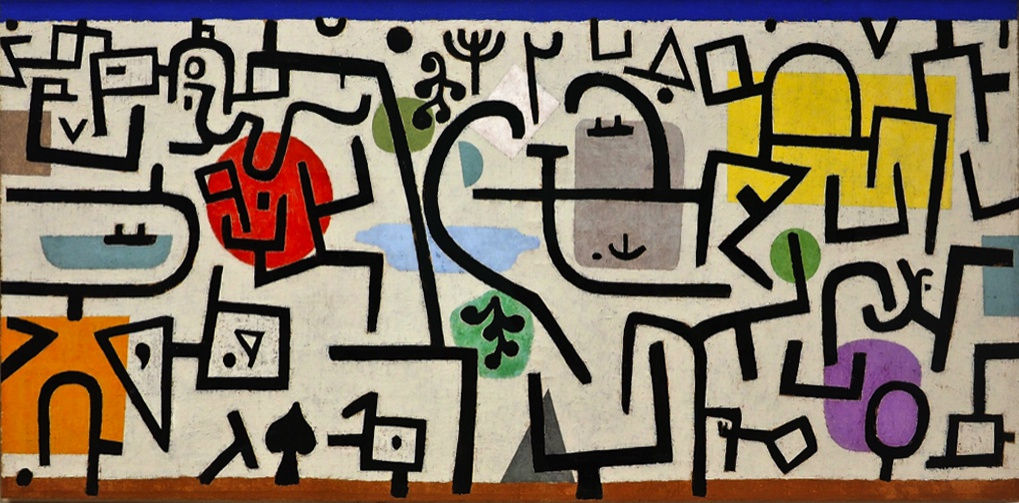
Paul Klee, 'Rich Harbour (Picture of a Journey)' 1938
Oil on coloured paste on drawing paper on burlap. Kunstmuseum Basel.
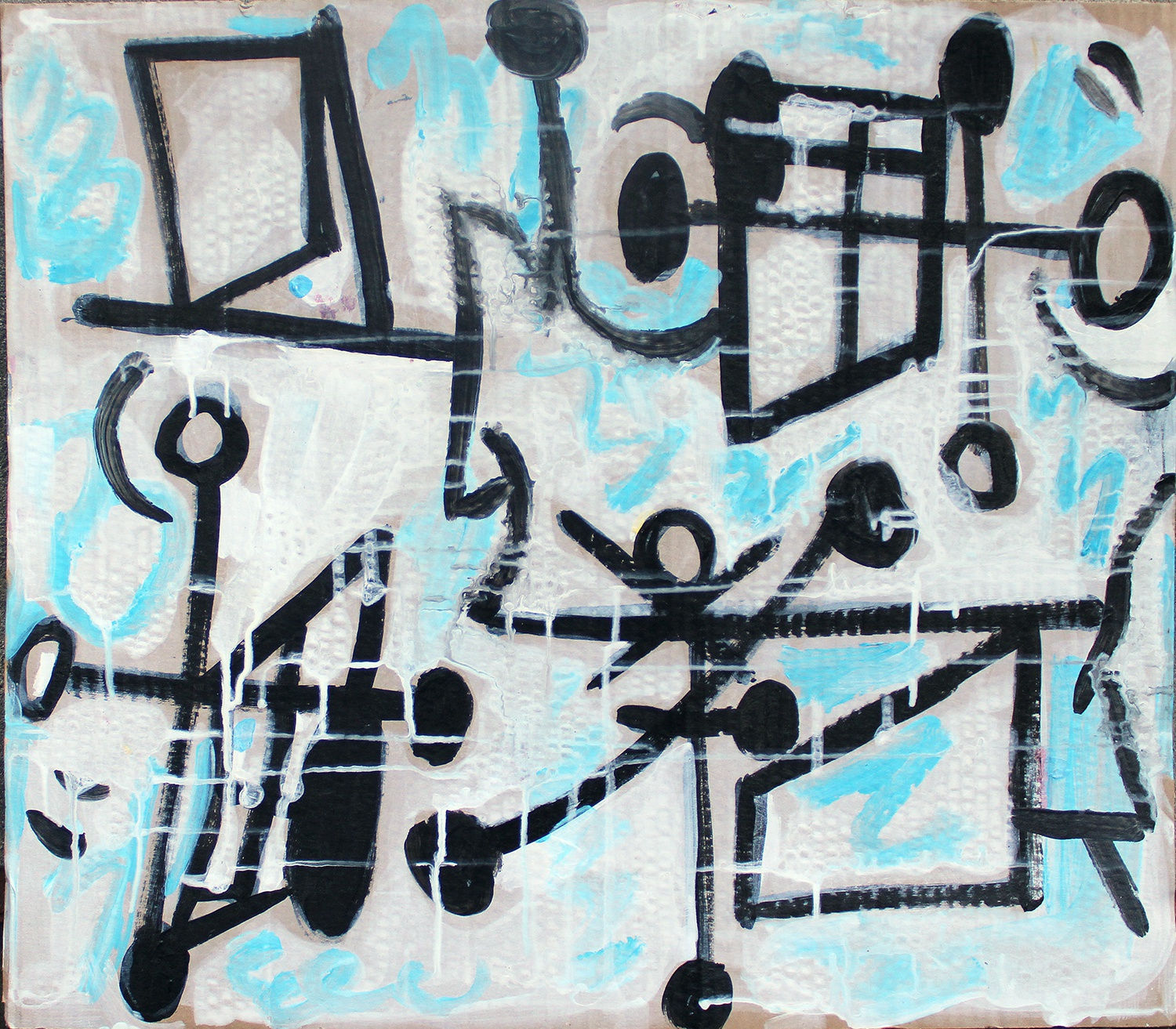
' The Ect Machine' 2020, Acrylic on board, 46 x 45 cm
The facts of real-life and art are matter of fact. Studying, reading about Georges Braque, for example, whilst looking at his paintings, it became important that he survived the First World War Trenches and was badly wounded in the head, needing a hole drilled in his skull. This doesn't have any bearing as to why his paintings are so compelling but it matters. Engaging with the ‘Now’ – the exclusively Contemporary – becomes a way of illuminating historical matter as it bombards us. It is an experience of participating in a dynamic – probably a contradictory one. Things come back to life. Straddling England and France as I do is a very contradictory non-place to exist in –one where at-odds histories and politics (cultures) meet. I can never really settle. I think that’s in the work.
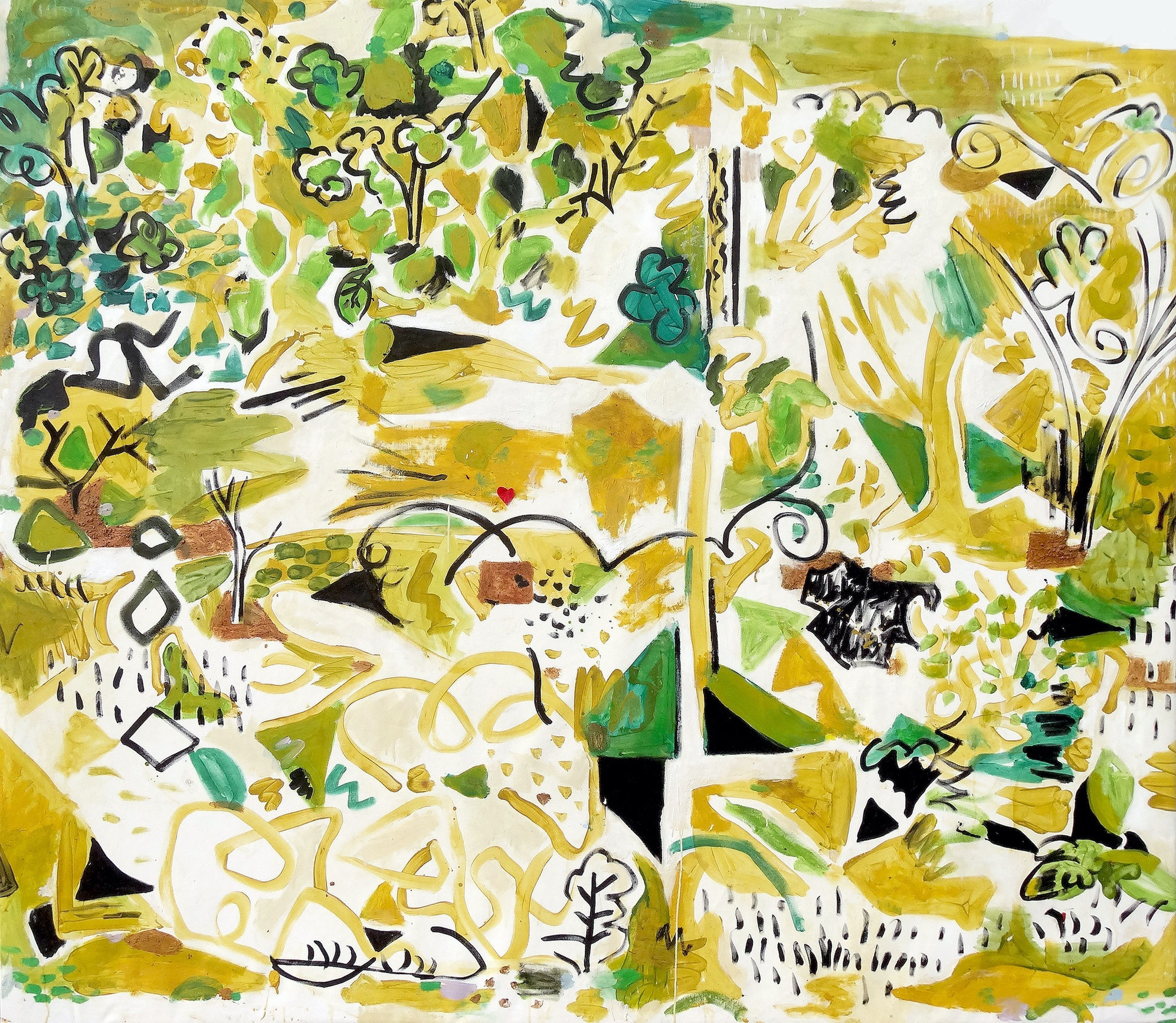
'Les Jardins (The Gardens)', 2019-2020, Oil and collage on canvas, 200 x 240 cm
The idea that everything in each person's psyche responds to a logic and that all the elements find their own order is something challenged by the readings in philosophy that I have indulged in. Jacques Lacan (who hung out with Dadaists), for example, was pretty influential because at one point he identified the self as a junk shop. This psycho-philosophical sense of bits and pieces has meant that I’ve never really felt that old school modern art – let us take Picasso, Matisse, Klee, and Braque as exemplary representatives – weighs me down with Meaning and so I've never felt it as something to reject on any level. At art school such innocence was scorned; its multiplicity rejected as pluralistic naivety and it was seen as ‘falling for something’. Unsaid but ruling judgments ruled that contradictions were to be fought and excised in favour of linguistic clarity and impressions of creative originality. (I guess creativity itself was understood as having an authoritative theological tinge which involved a God-like artist standing back and creating from scratch). But for me, derivativeness is creativity flush with everyday life rather than precious and distant and oppressive. Its creative nature isn't God-Like but actively historical and alive. Engaged, imminent, and going with the flow. Productive. In my studies Situationist notions from early 1960s radicalism such as 'derive' became engaged in classic Fine Art experiences rather than limited to undermining mass media oppression from a superior position. I let myself be possessed by influences, indulging in the hallucinatory phantoms I find and follow. I lose myself in painting.
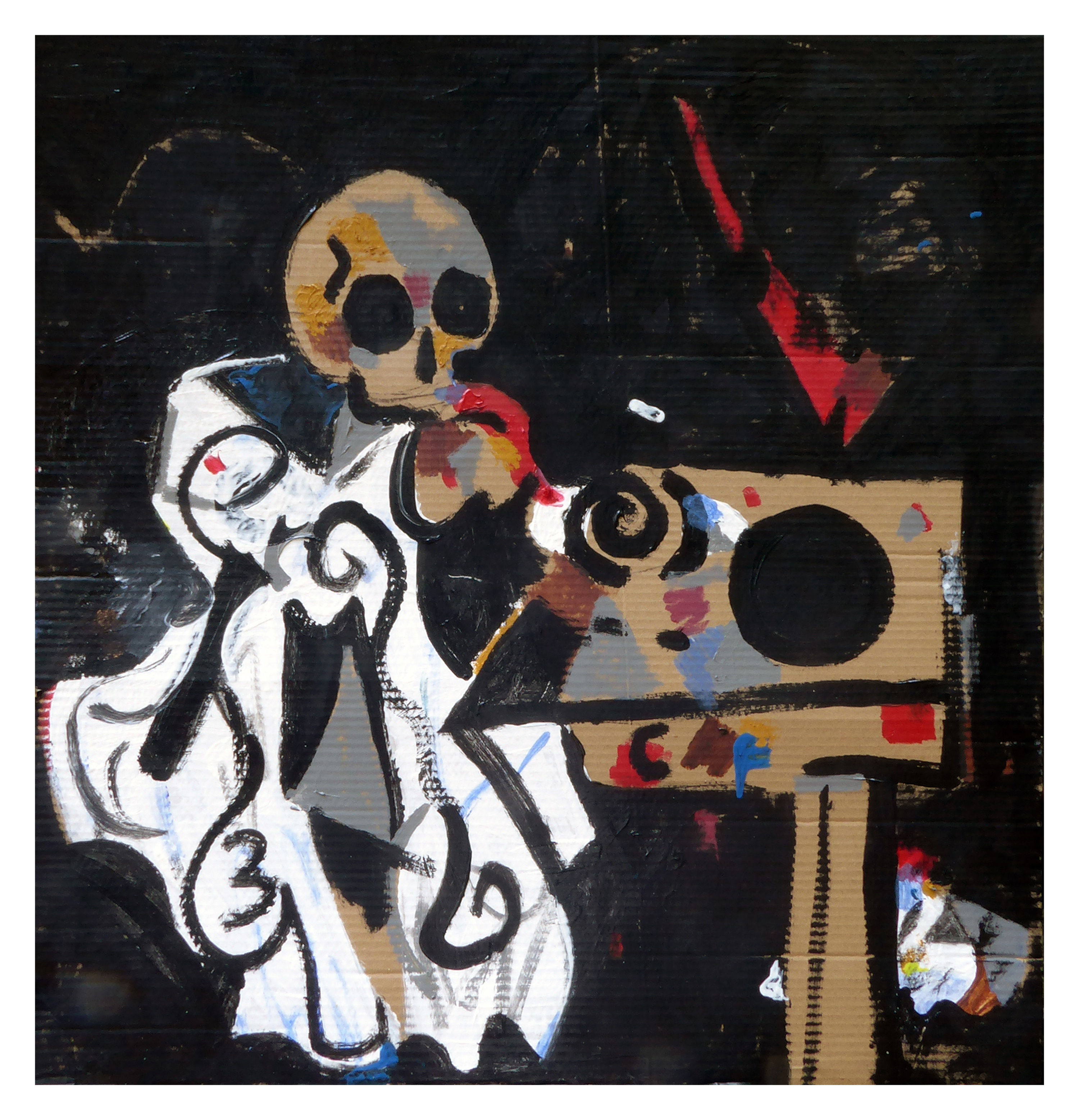
'Still Life With Skull' 2018, Acrylic on cardboard, 73 x 76 cm
At some point, I engaged in a study of the Classical Grotesque. Marginal by nature, I felt that it was a genre that had become a central tenet of art as experience, one that washed away uniqueness and bubbled under like some hot spring. Paul Klee seems the ultimate conduit of that flourishing nature as with so much else. His work, like that of Giacometti, seemed to both call from some ancient made up lost civilisation, and yet also demand immediate engagement. The rhetorical work of Asger Jorn also calls and the devastating Pollock insists. Unpicking his and Lee Krasner’s influences to understand how it all works feels vital to me. I am of an age when I could go and look at Dubuffet’s last paintings fresh from his studio and on display in galleries in London.
Seeing the Late Picasso show at the Tate, while I worked there in the postcard shop in the late 1980s', also had a huge impact on me and triggered so many aspects of my desire in painting and life. The old Spanish guy seemed to bring so much together while submerged in watching wrestling on TV and painting in his slippers. Leap frogging the American Abstractionists he lands in Pop Art somehow. Those late paintings don’t reproduce well, but in the flesh it is all in there really, overflowing, and all the better for all feeling a bit wrong.
"Picasso’s Late Work: A Creative Renaissance"
Examining the impact of Picasso’s later paintings on contemporary art.
Read more on The Guardian
